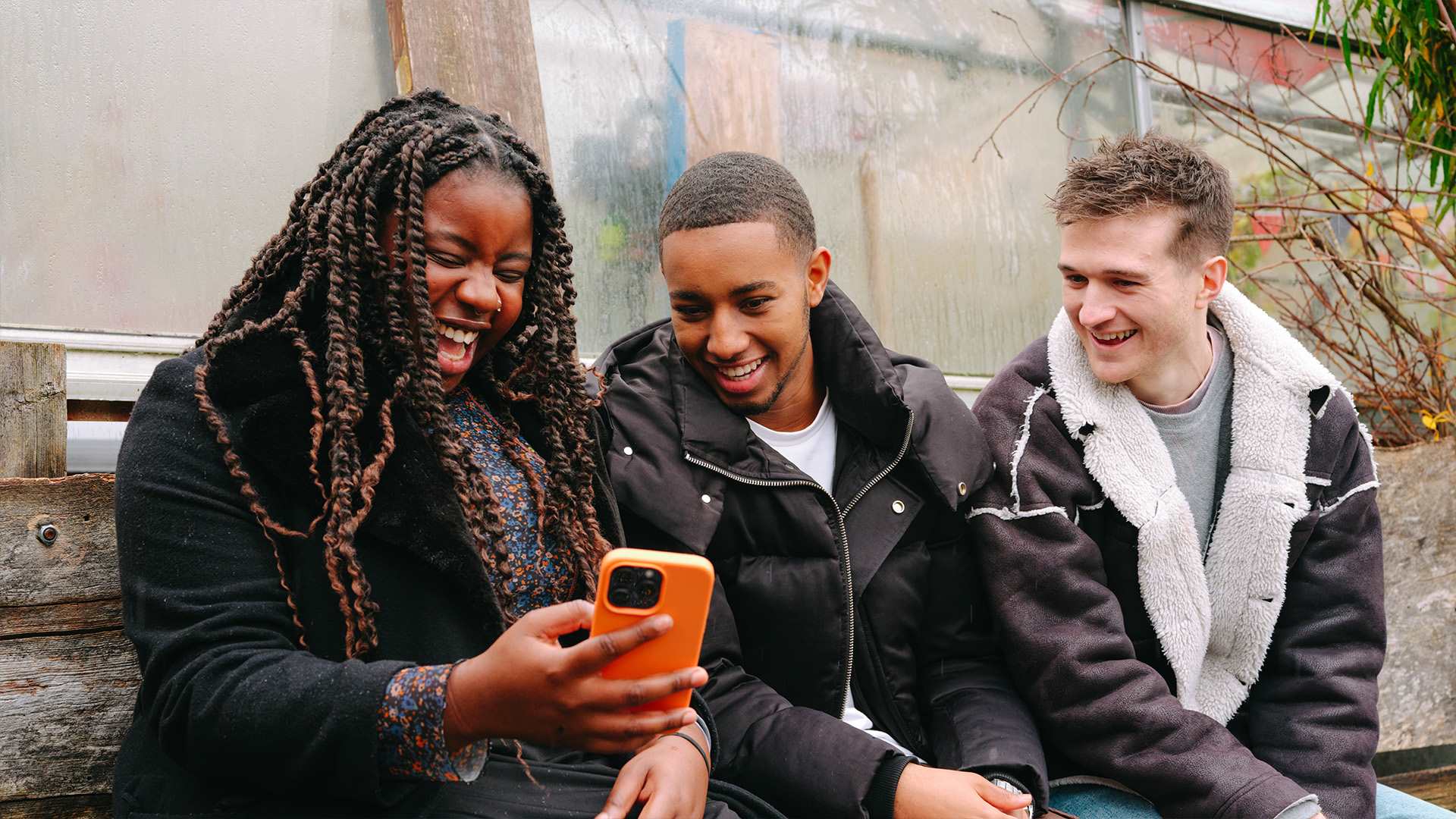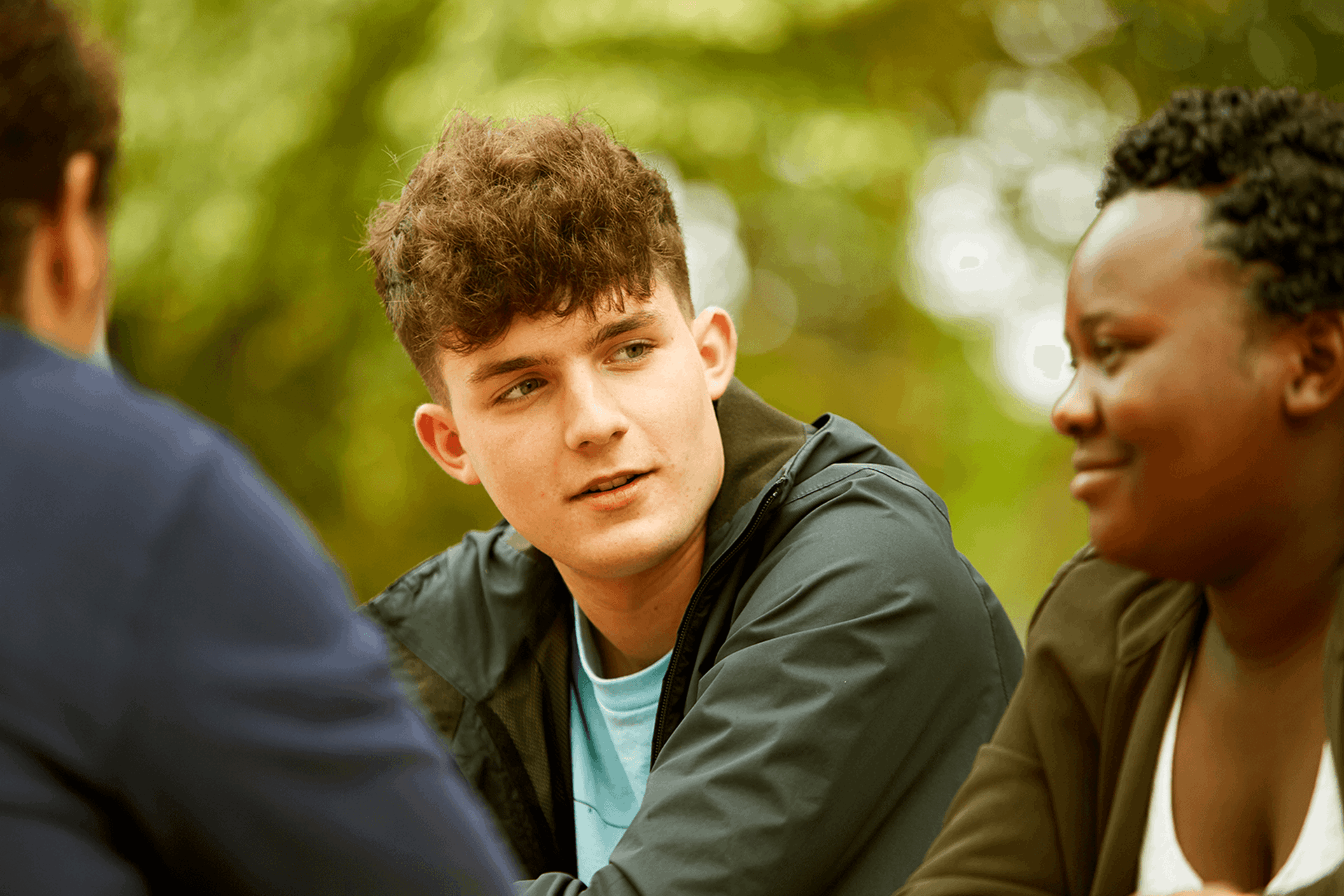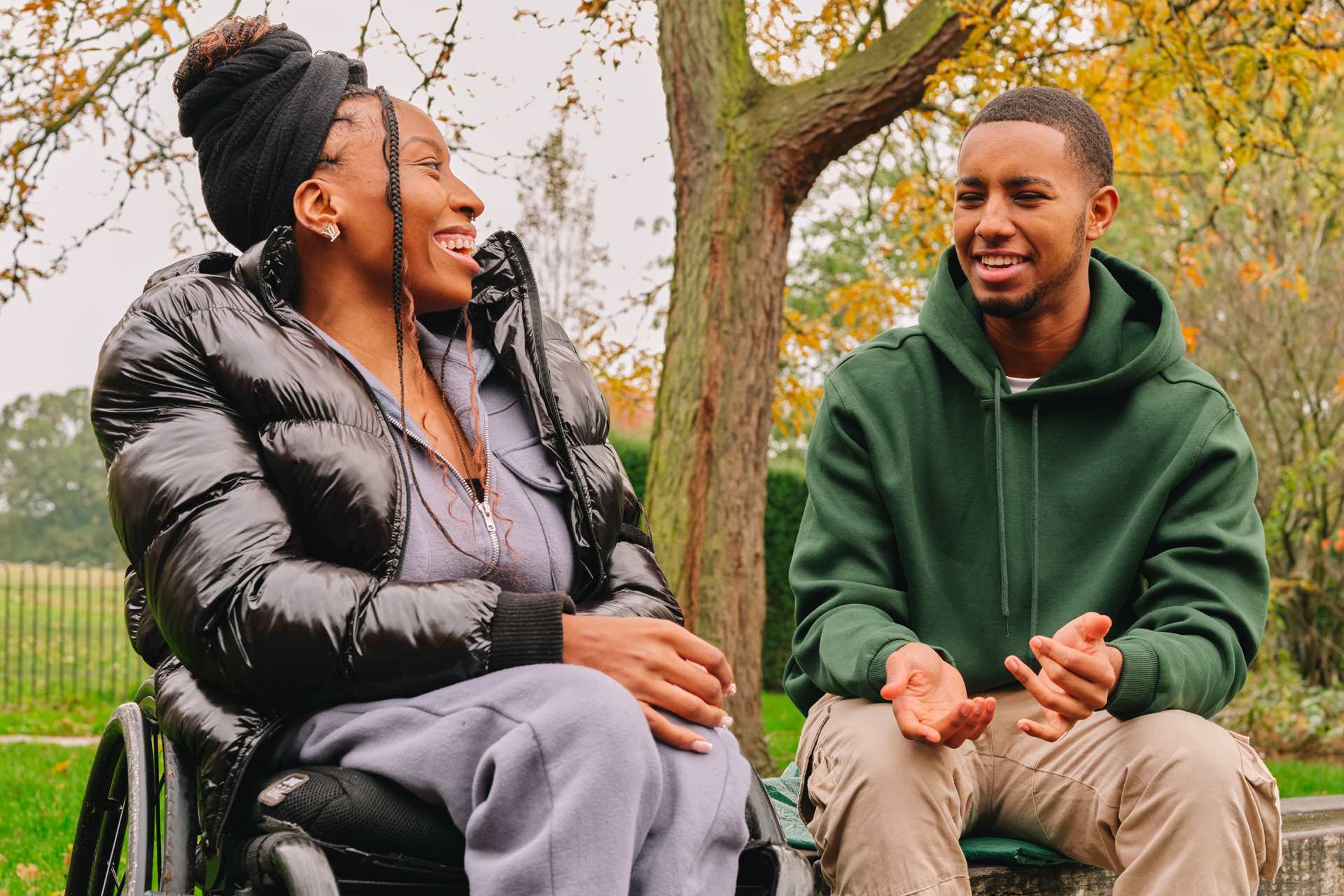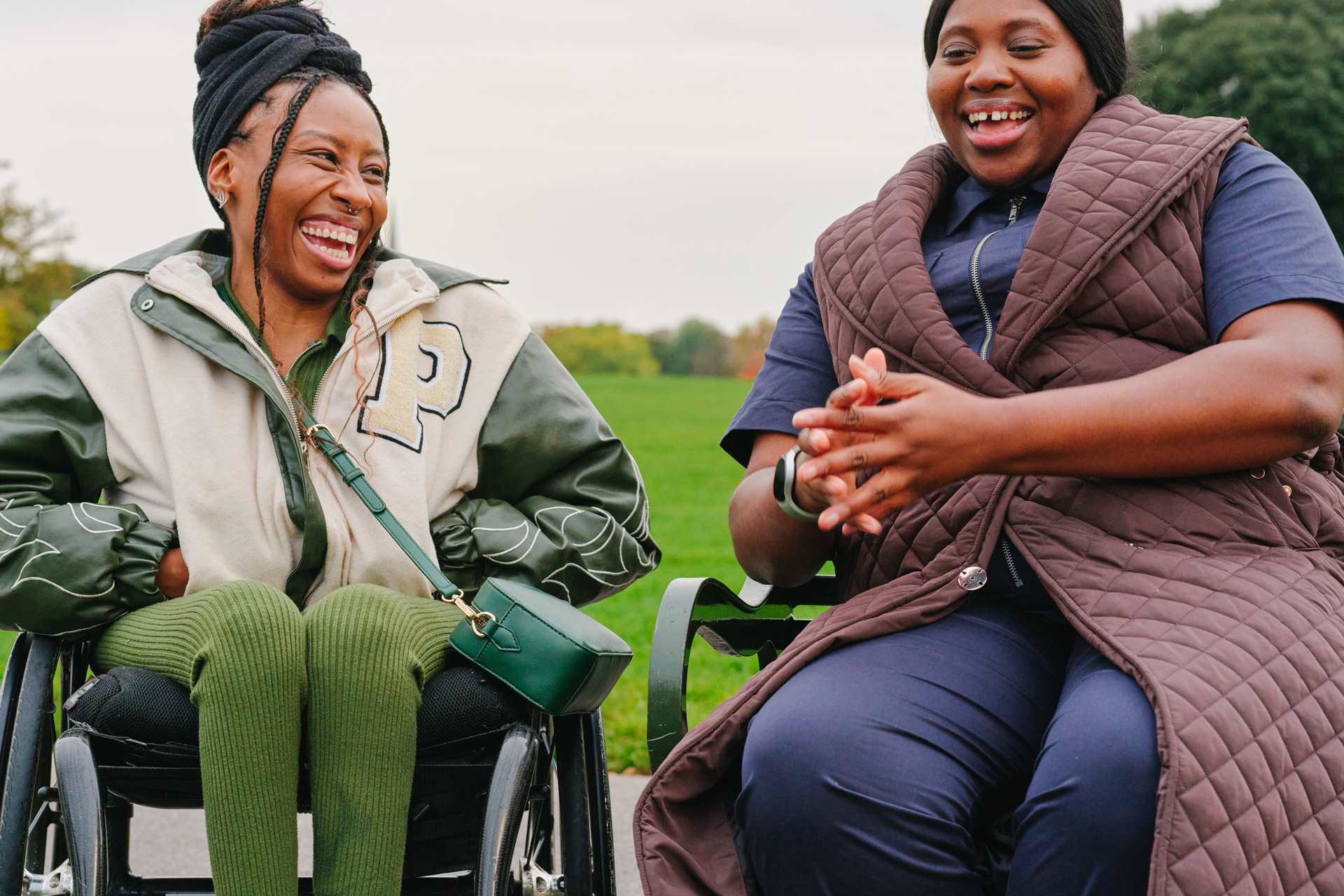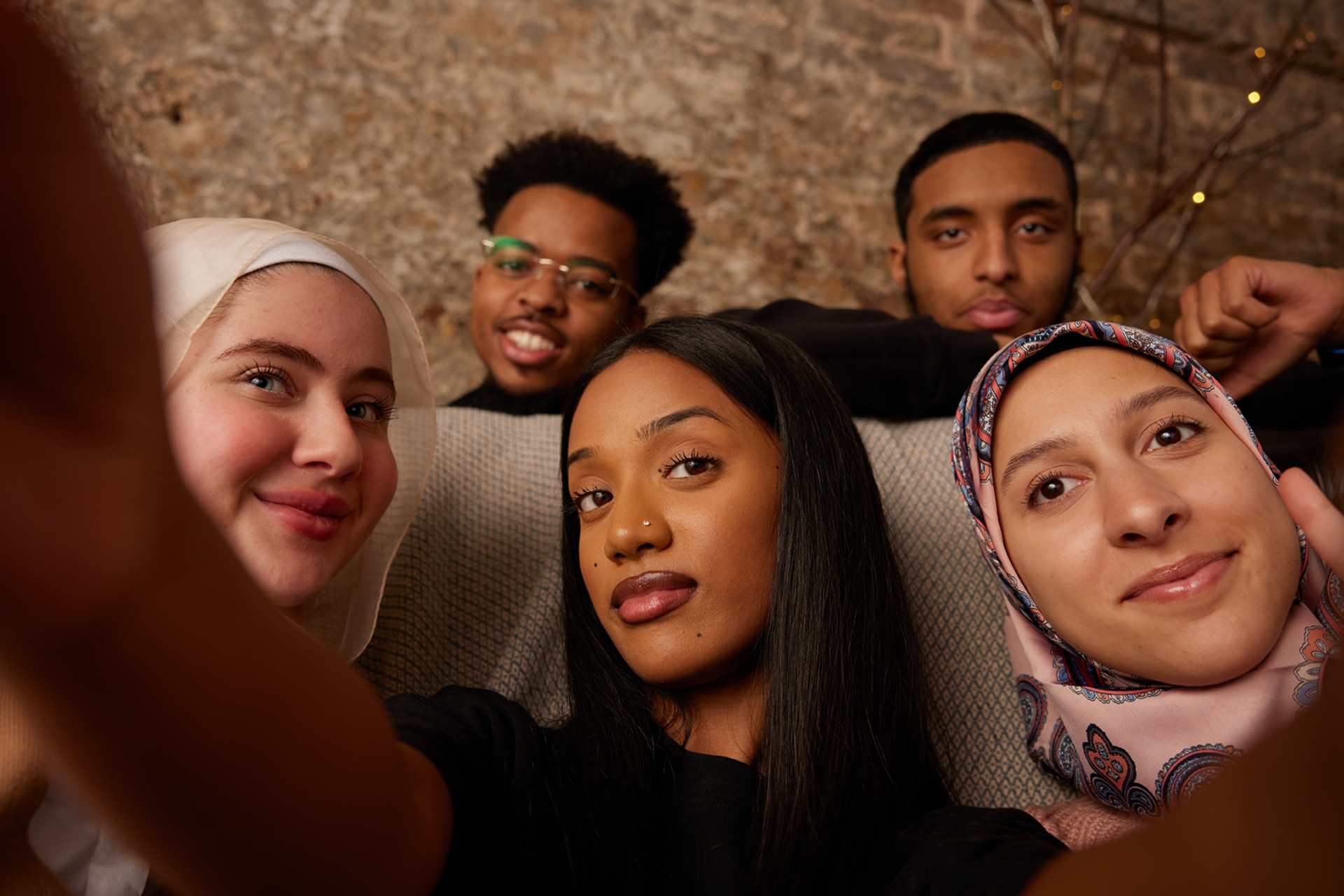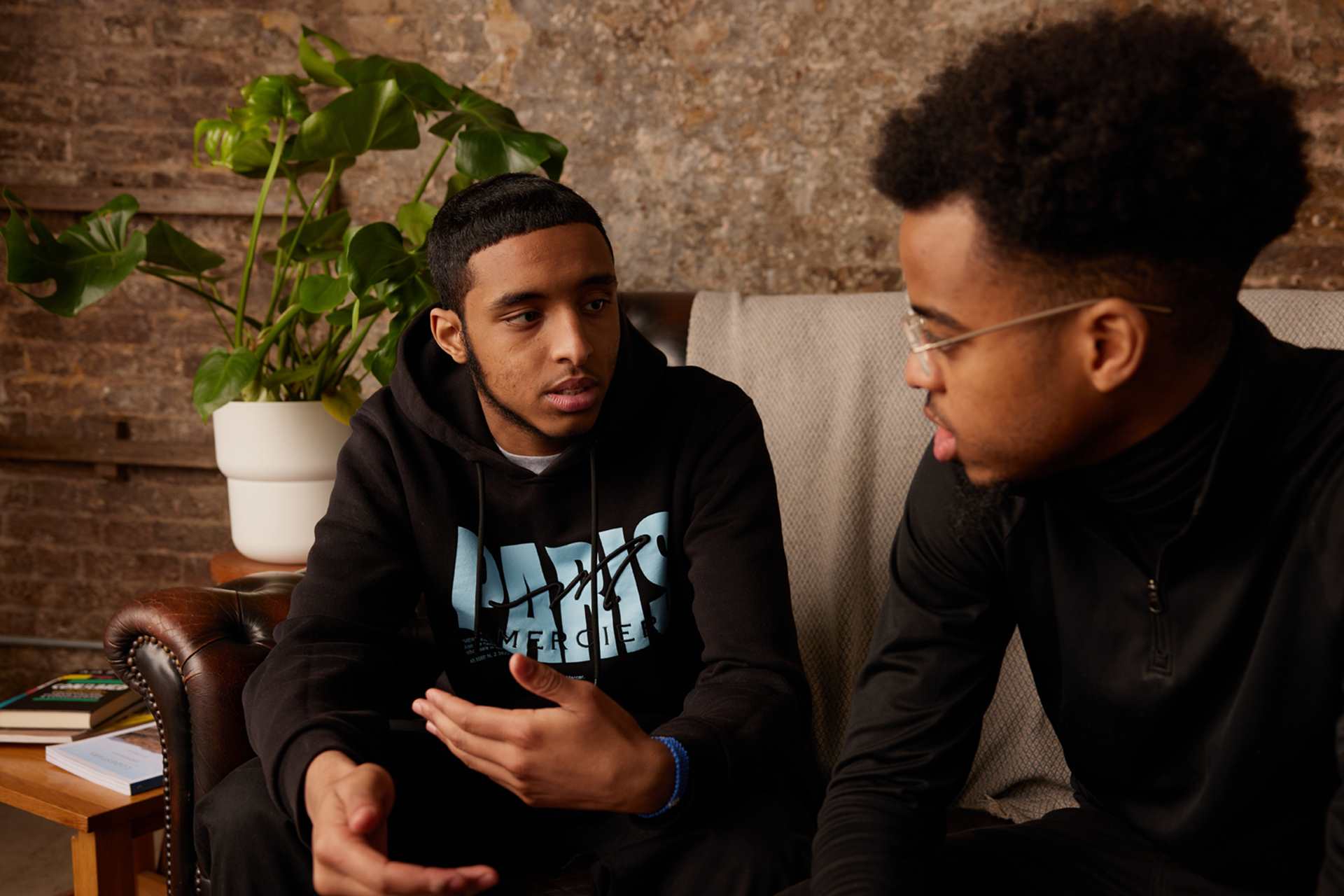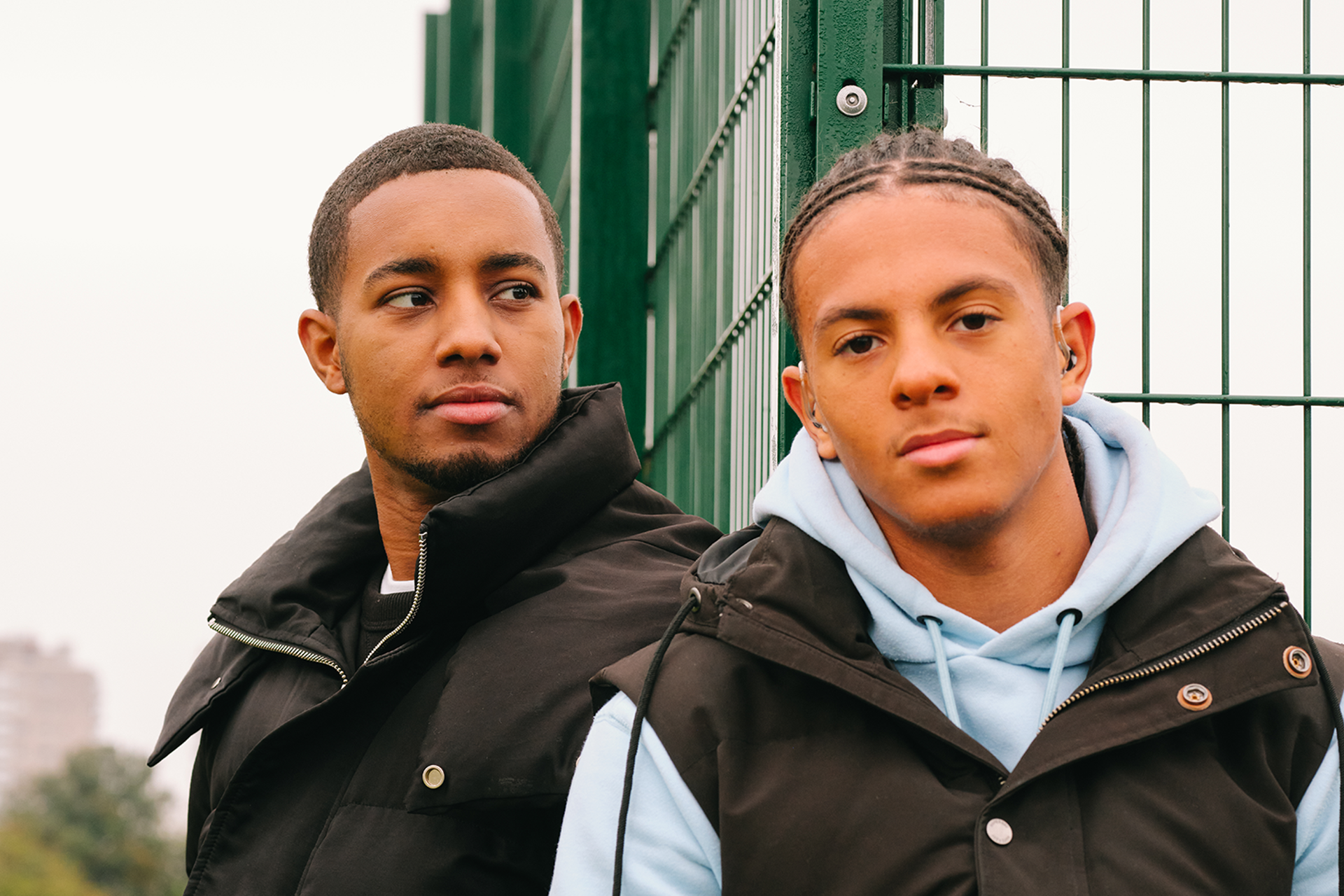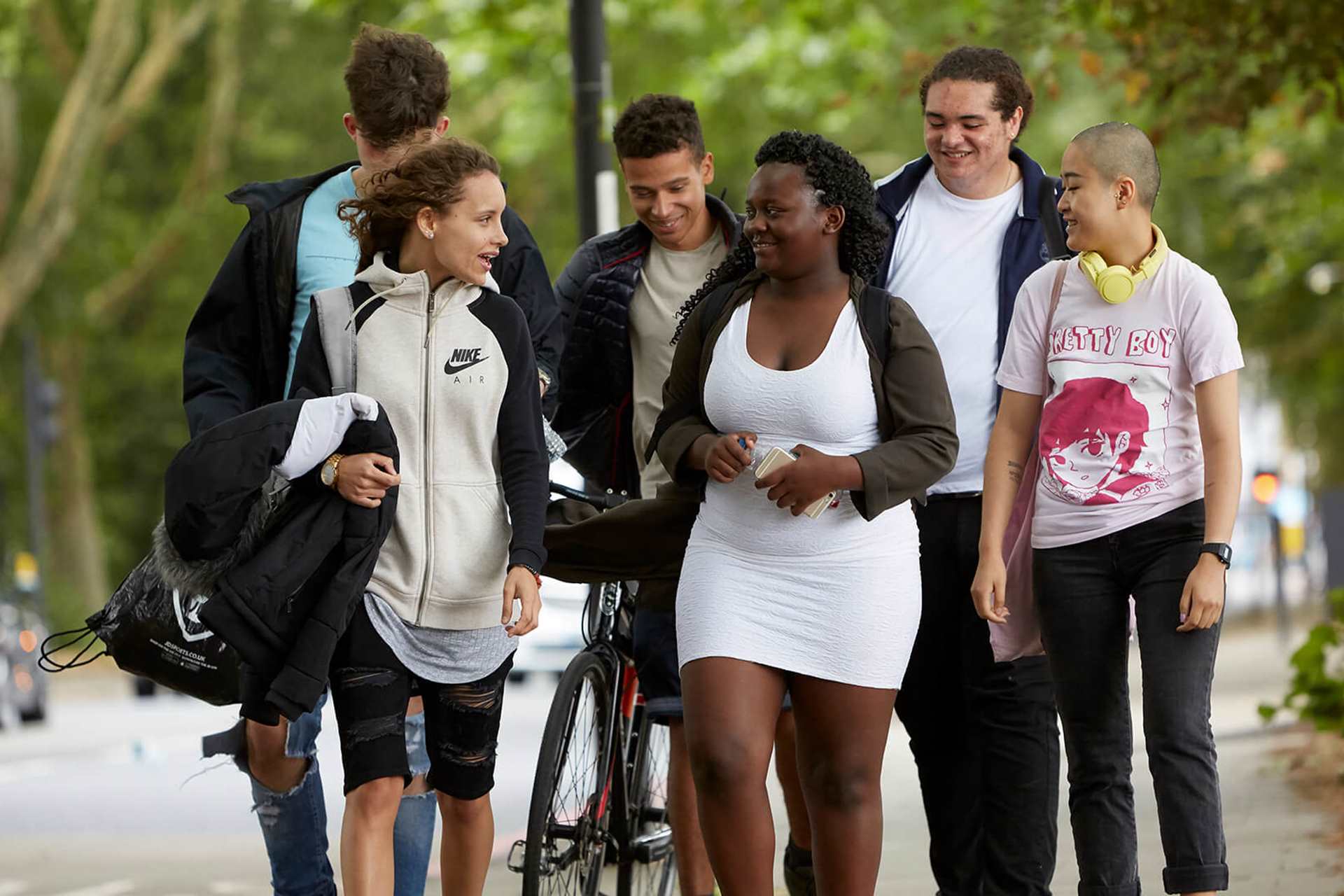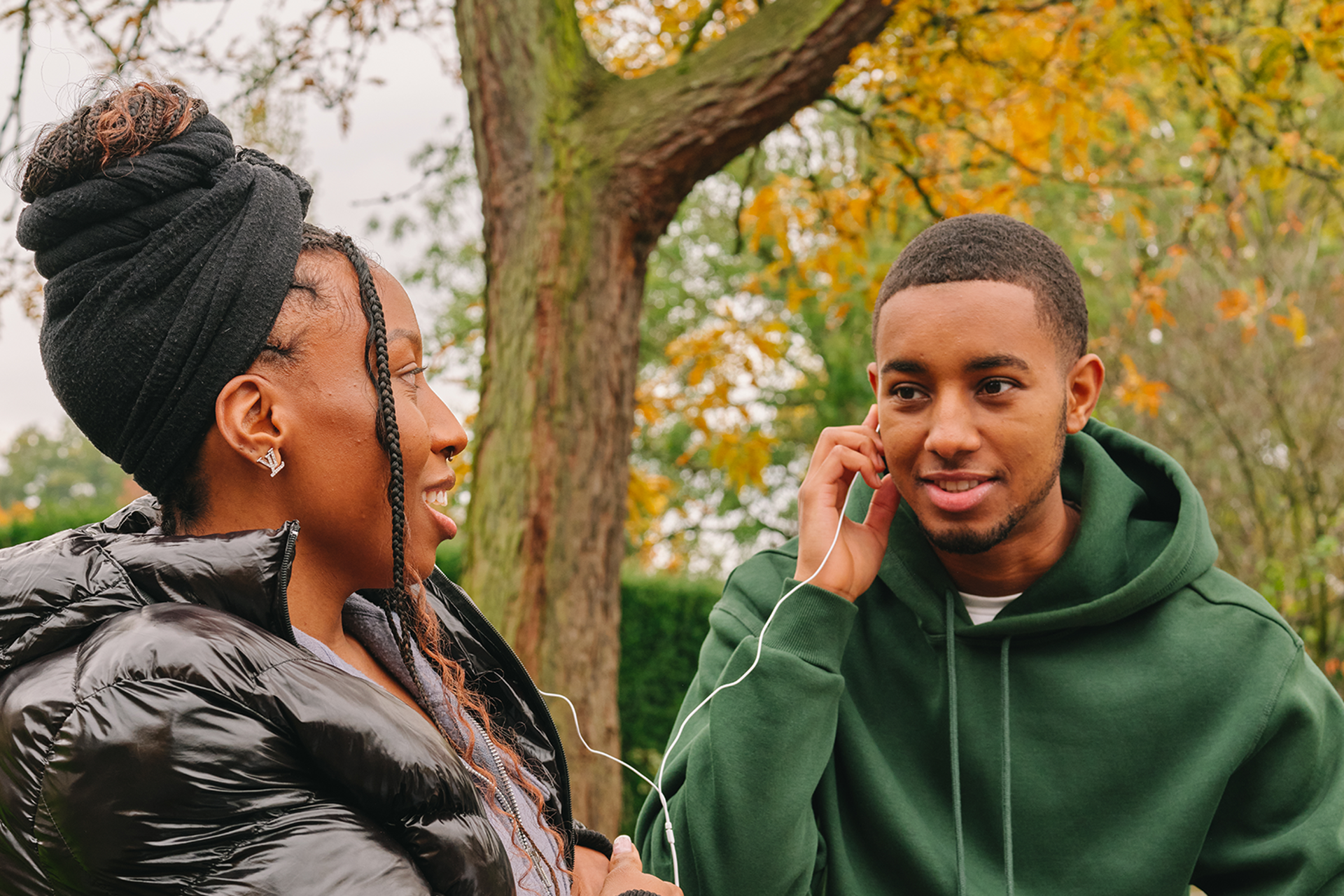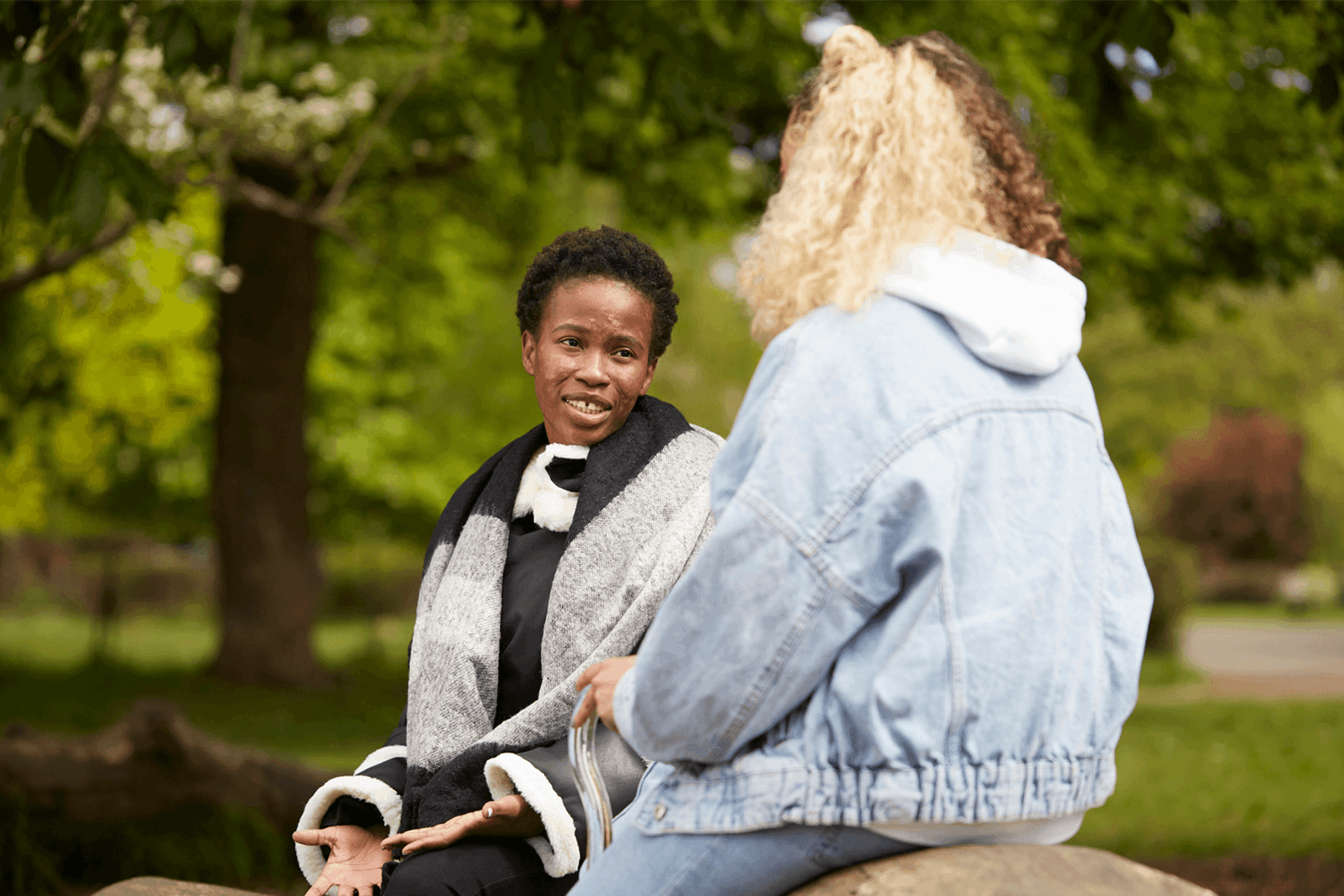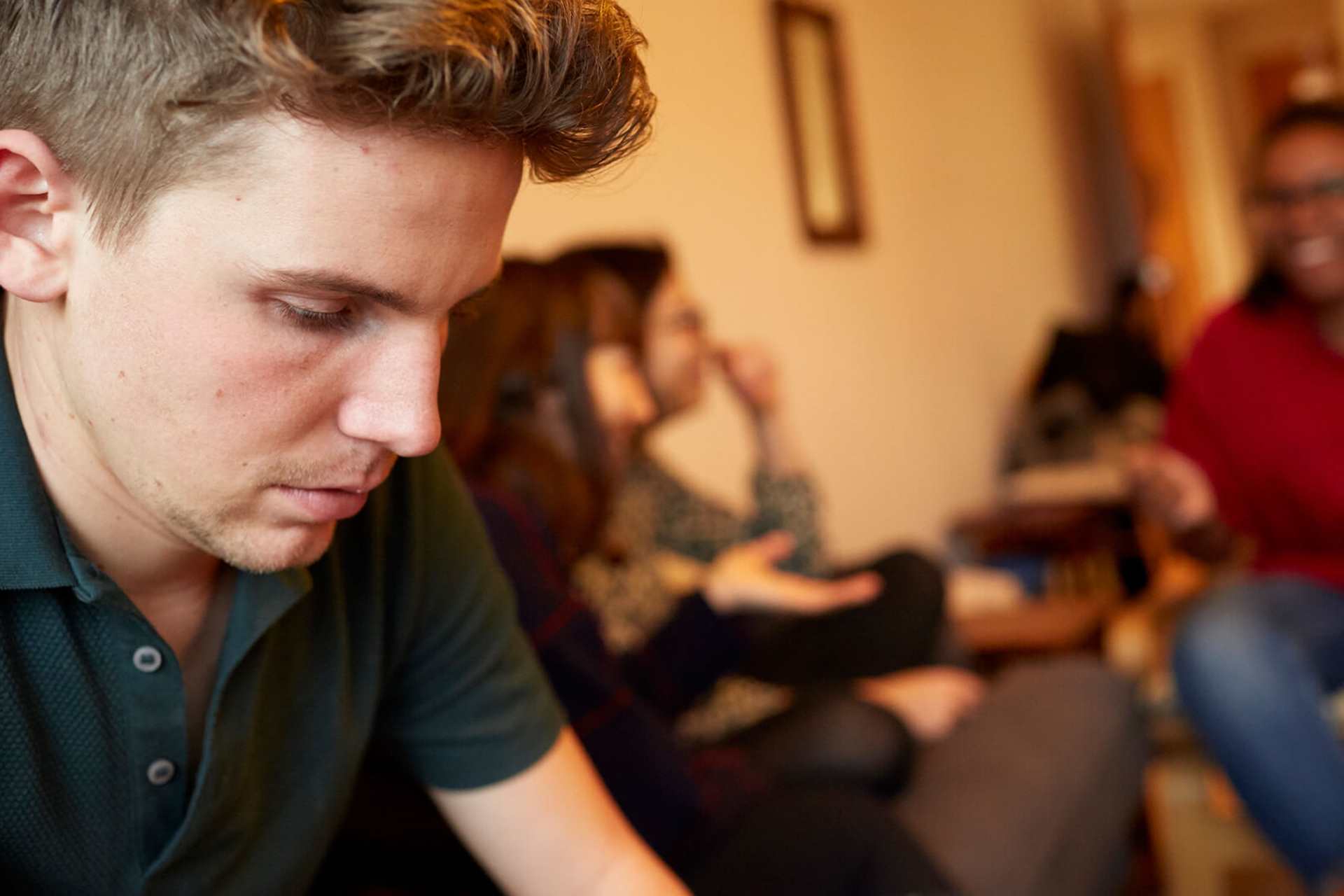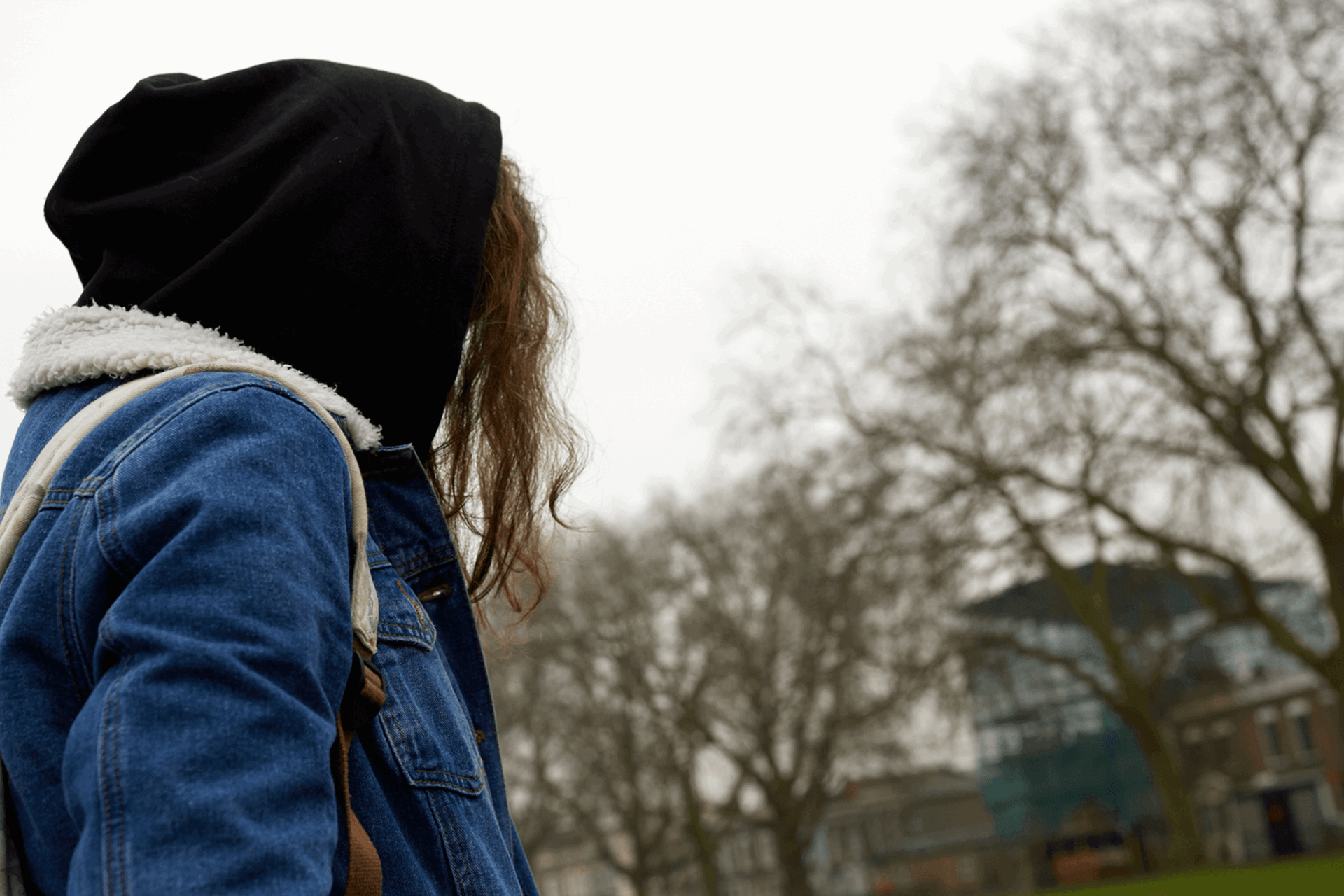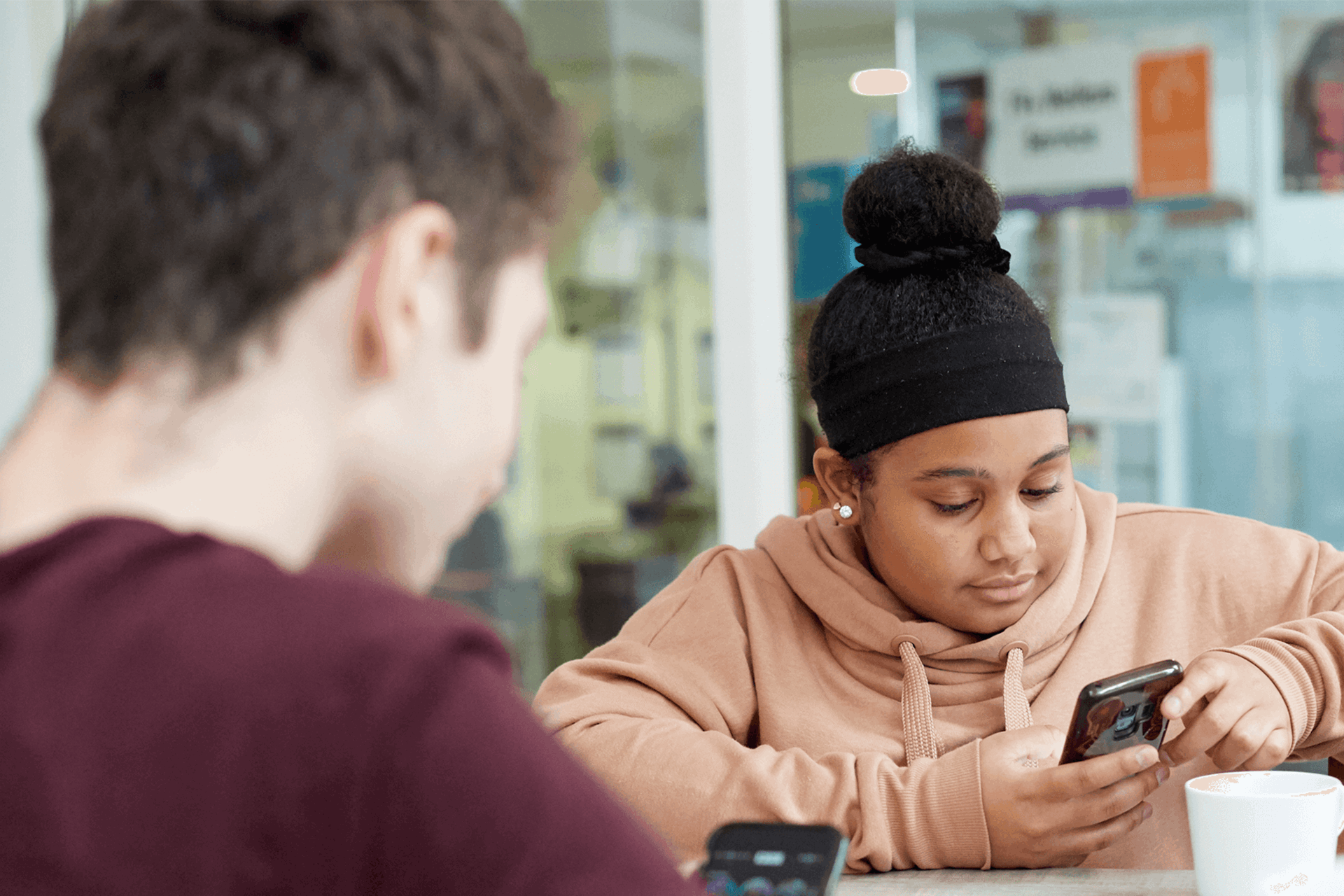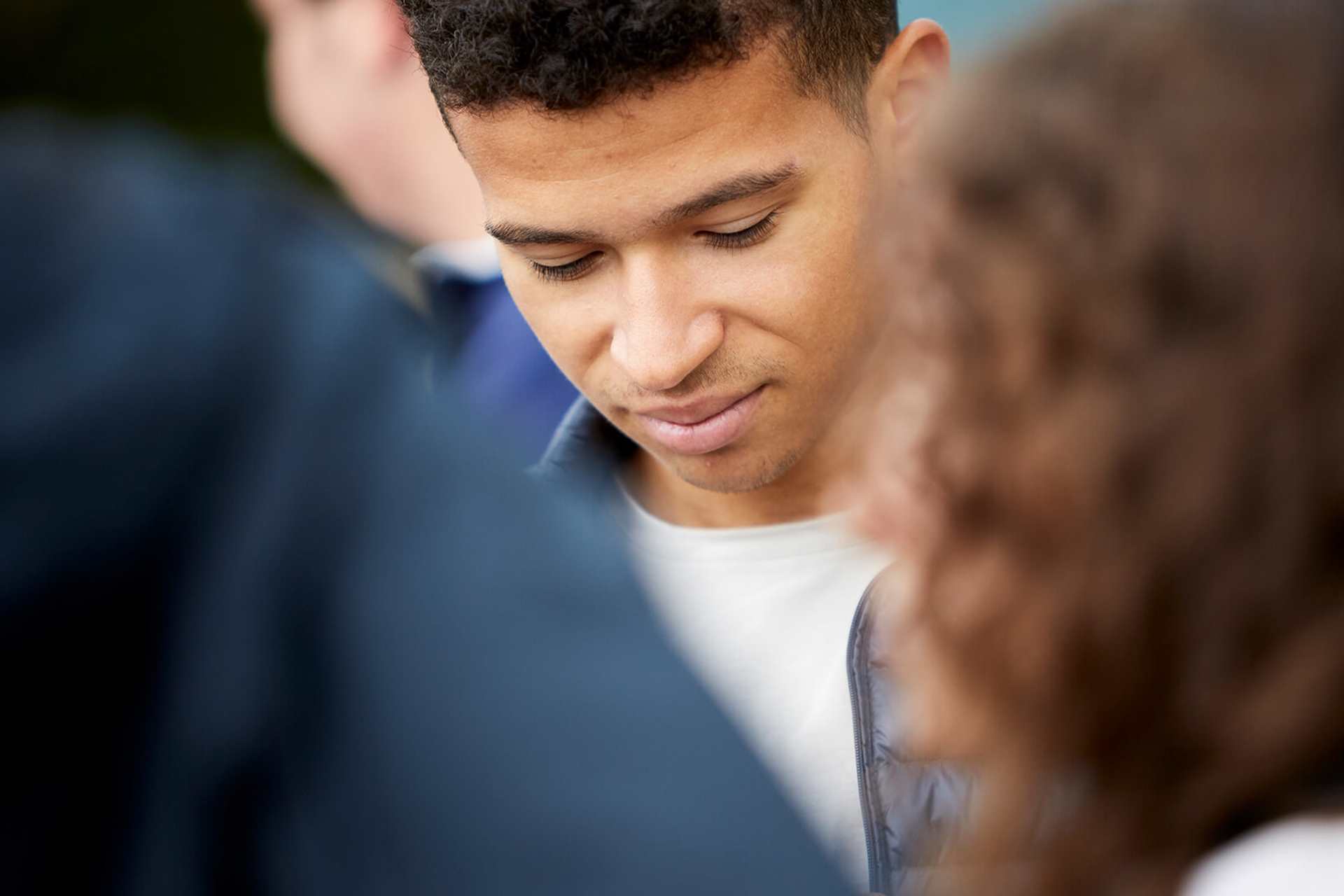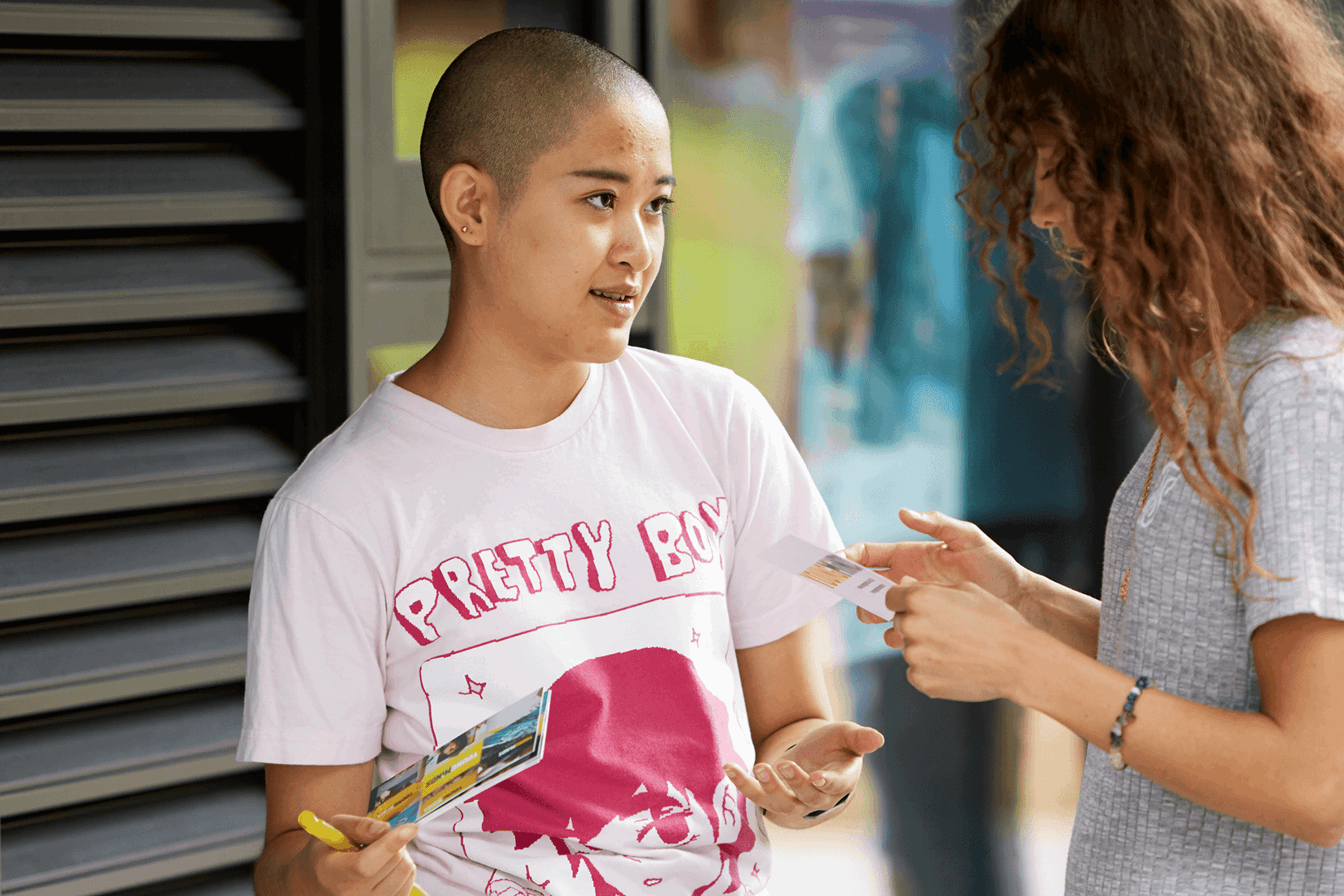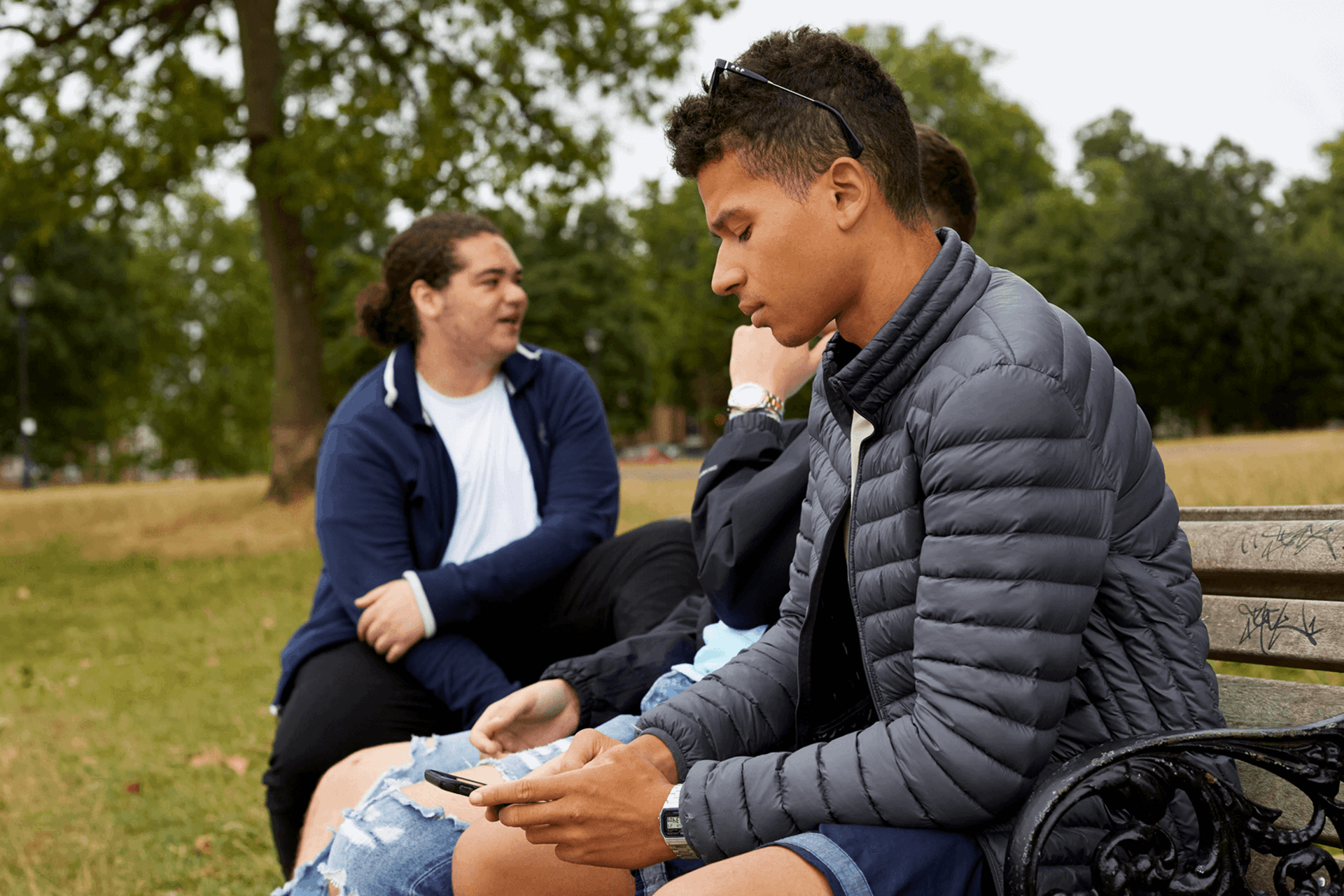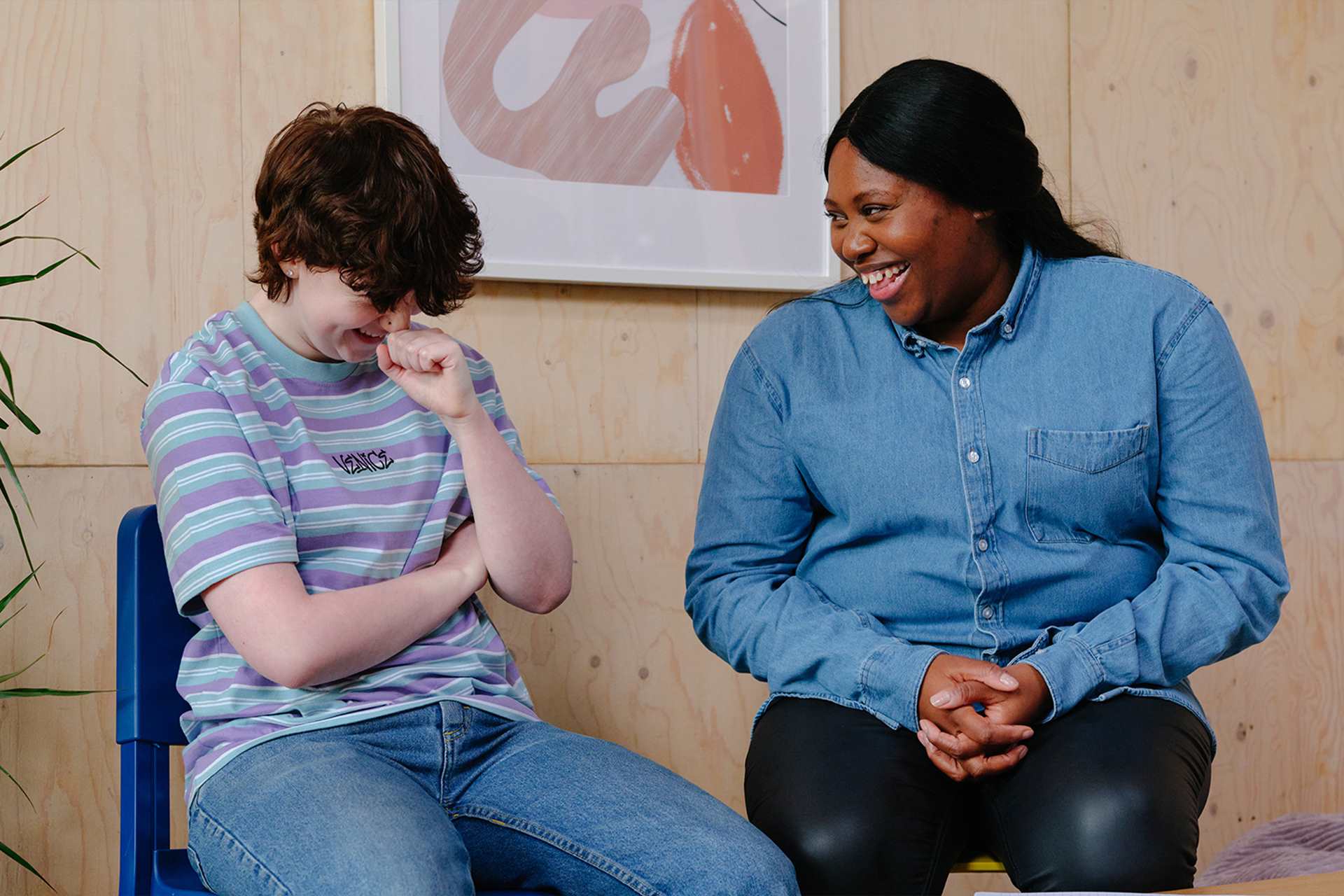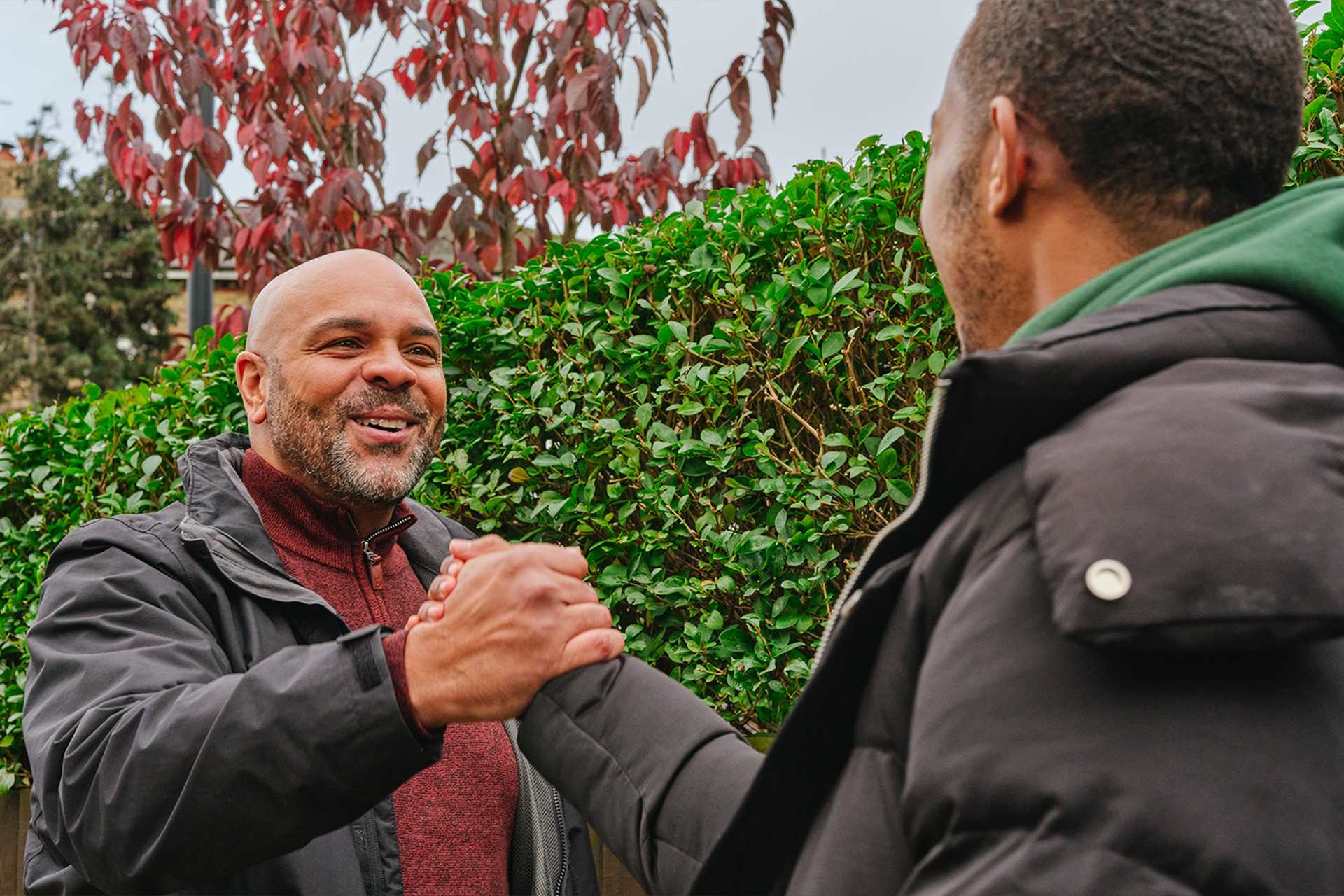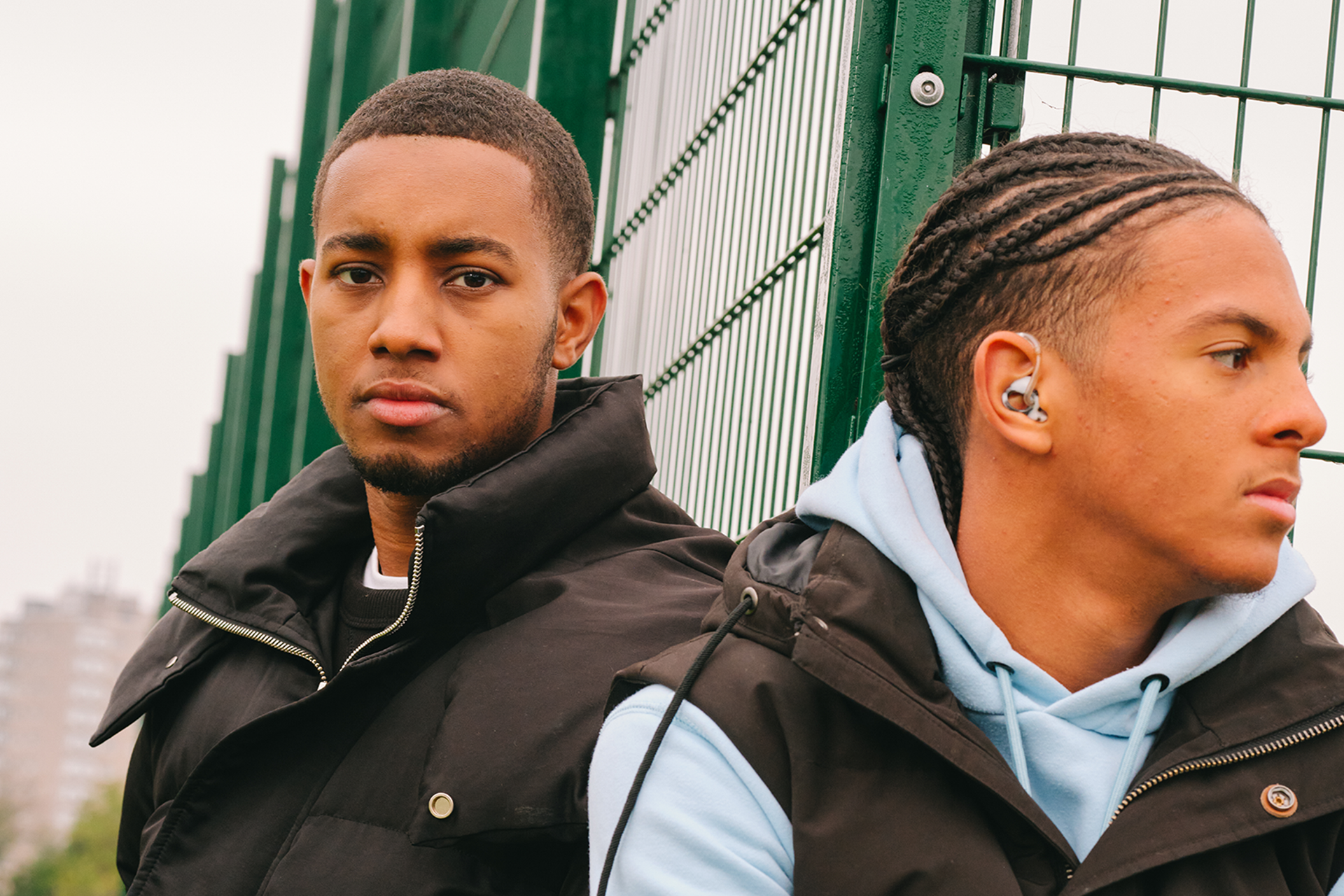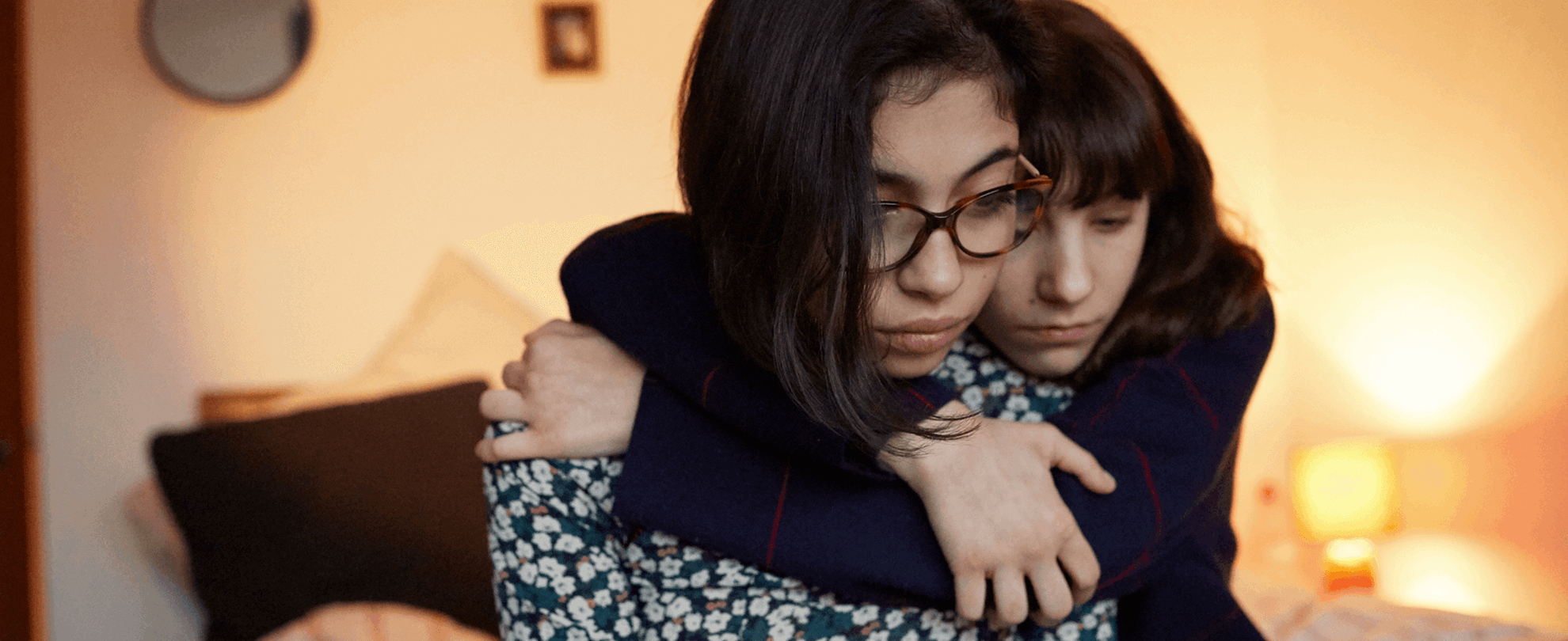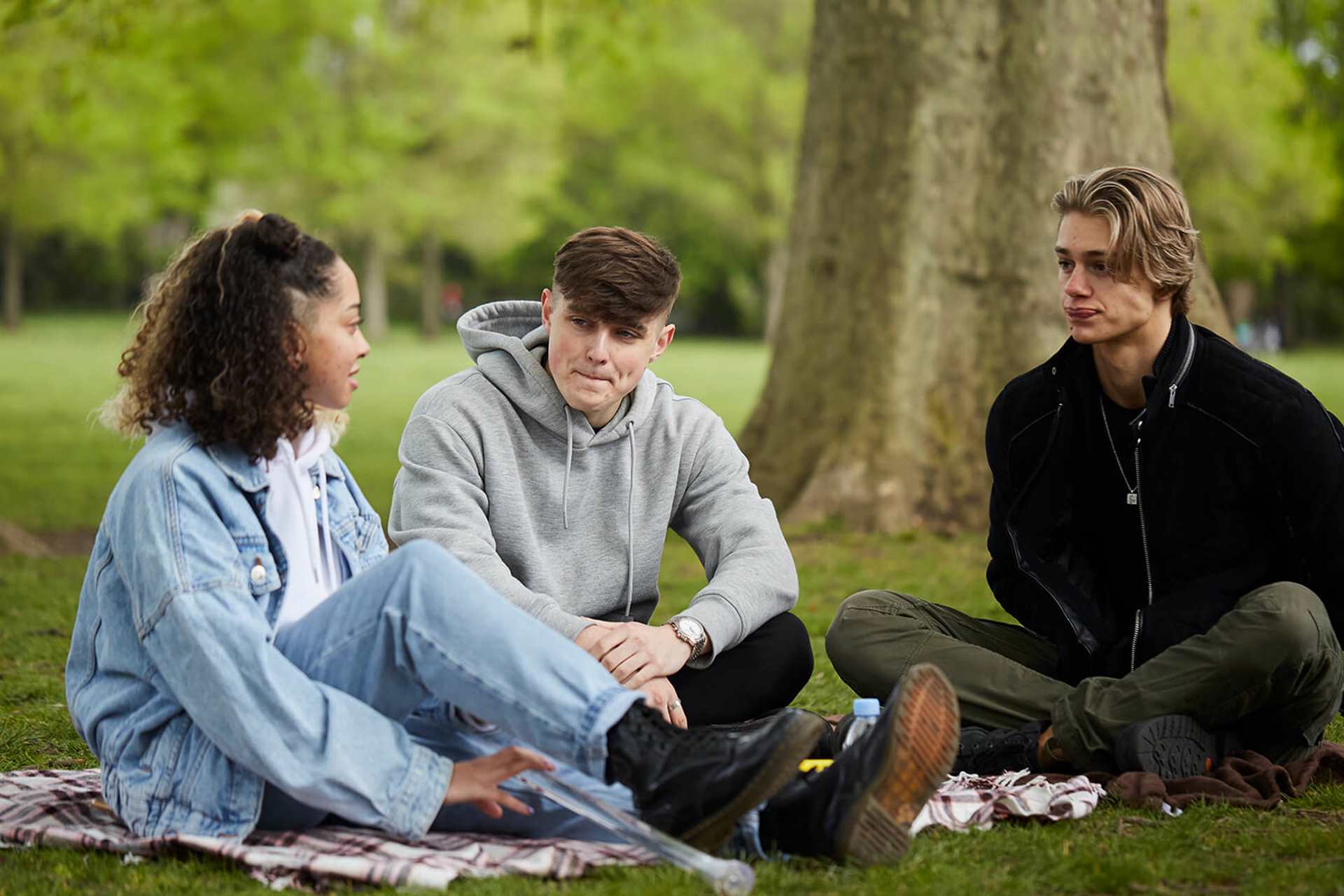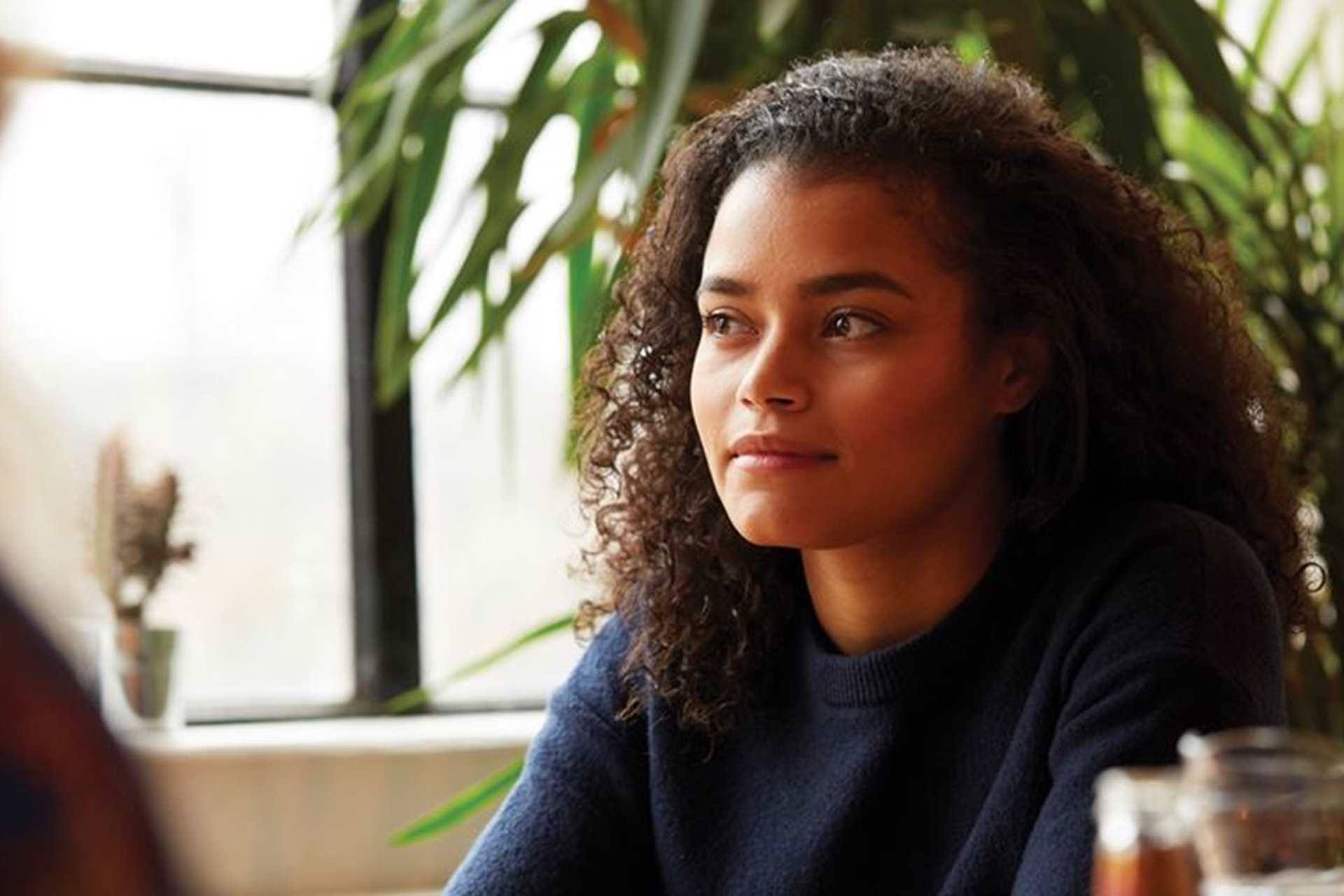Everyone wants to be connected, to express themselves, and to feel understood. When this doesn’t happen, it can make you feel alone. But no matter what, you deserve to be seen, heard and accepted.
Not everyone is going to get you and that’s okay. But if lots of people aren’t getting you and it’s making you feel low, it’s a good idea to get help. An important first step is to accept who you are. Everyone is unique and sees the world in their own way. The more you accept yourself, even the bits of yourself that some people might not understand, the more comfortable you’ll feel.
What to do if you're feeling really low
When you feel people are judging or misunderstanding you, it can make you feel a lot of horrible emotions. At times like these, it can be easy to blame yourself or think you don’t deserve to be happy in who you are. When you’re in that mindset, it’s easy to spiral and get stuck in these negative thoughts. You might hide yourself away or close yourself off to people.
If these negative thoughts feel too much and you can’t get away from that feeling, you might be struggling with low self-esteem or depression. If you’re feeling these negative thoughts are taking over and you’ve hit rock bottom, it’s important to get help now.
Whatever you’re feeling, we have advice that can help.
If you're not sure where to turn to for help right now, these services can support you.
-
Samaritans
Whatever you're going through, you can contact the Samaritans for support. N.B. This is a listening service and does not offer advice or intervention.
- Opening times:
- 24/7
-
Childline
If you’re under 19 you can confidentially call, chat online or email about any problem big or small.
Sign up for a free Childline locker (real name or email address not needed) to use their free 1-2-1 counsellor chat and email support service.
Can provide a BSL interpreter if you are deaf or hearing-impaired.
Hosts online message boards where you can share your experiences, have fun and get support from other young people in similar situations.
- Opening times:
- 24/7
-
Papyrus
Offers confidential advice and support for young people struggling with suicidal thoughts, as well as family and friends; and information about how to make a safety plan.
Its helpline service - HOPELINE247 - is available to anybody under the age of 35 experiencing suicidal thoughts, or anybody concerned that a young person could be thinking of suicide.
- Opening times:
- 24/7 every day of the year
Remember: you matter
Here's a reminder that you are loved.
Video description: Charis is a Black young person wearing a black t-shirt and glasses. They are in a room with plants and books and are sharing a message in British Sign Language. The message is 'Oh hi, here’s a reminder in case you don’t believe this. You matter, you are important, you’re loved and you living on this earth right now makes a difference whether you see it or not. Every morning, remind yourself of this ok.'
30 second watch
What to do if you feel like people don't get you
Everyone experiences the world in their own way. Things like talking to friends, busy spaces or coping with change can feel different for everyone.
When people don’t understand what you’re going through or think you’re just being difficult, that can feel really isolating. But your feelings and opinions matter. Try and reach out to people you trust about how you’re feeling so they can understand you and help. Here are some guides and advice that might help.
During your life, you might think about and explore your gender and sexuality. This can happen at any time and it’s normal to explore different parts of yourself. If people around you don’t understand this or start to treat you differently for it, that can have an impact on your mental health. But it’s important to be true to who you are and express yourself in the way that feels right to you. We have advice in our guides.
If you spend time with people of a different race, religion or cultural identity, it can be easy to feel like they don’t get you, or like you have to explain parts of yourself to others. This can be tough, but lots of young people have this experience, and there will be people out there who do get you. Advice in our guides might help.
Discrimination is never okay
If people are saying or doing things to you because of your race, religion, gender, sexuality or disability, this is discrimination and it is never okay.
If you’re being discriminated against, talk to someone who can help you get the help you need and stop what’s happening. No one should ever be treated differently because of who they are.
What to do if you feel alone at school or university
School and university can both be fun, but they can also feel really tough sometimes. In school, you might feel like others are doing fine while you’re struggling, or maybe you’re always getting into trouble or having problems with friends.
At university, things can feel overwhelming too, especially if it’s your first time living away from home, you don’t like your course, or you're finding it hard to make new friends.
If you’re having a hard time, there are people who can help, like your teacher, tutor, student welfare officer, or counselling service. We also have guides and advice to support you.
What to do if you're struggling with family and friends
Families can be complicated, and they have a big impact on your mental health. When family relationships get tough, life can feel really hard.
Friends can also be a great source of support for your mental health, but sometimes things don’t go so smoothly. You might find that you’re not getting along, or that you don’t feel comfortable in your friendship group anymore.
If you’re finding any of your relationships hard, our advice can help.
Things you can try to feel less alone
-
Try something new
It can be hard to meaningfully connect with people. But if you find people who have similar interests, this can help you build relationships. Try out different hobbies until you find one that makes you feel good – writing, sports, music or art are all good places to start.
-
Connect with others
Try connecting with people online in different groups or channels or finding a club or group. Joining a local group can feel scary, especially if it’s a new place where people might already know each other, but it can be a great way to meet likeminded people and try out something you’ve always wanted to.
-
Talk about how you're feeling
When you reach out to people, it’s likely that they might have experienced the same things that you feel. You’re not alone in how you’re feeling and people will want to help you. If you don’t know where to go or how to open up, we have advice and tips on reaching out.
Whether you love the page or think something is missing, we appreciate your feedback. It all helps us to support more young people with their mental health.
Please be aware that this form isn’t a mental health support service. If you are in crisis right now and want to talk to someone urgently, find out who to contact on our urgent help page.
At YoungMinds we take your privacy seriously. If you’d like to read more about how we keep the information we collect safe, take a look at our privacy policy.
